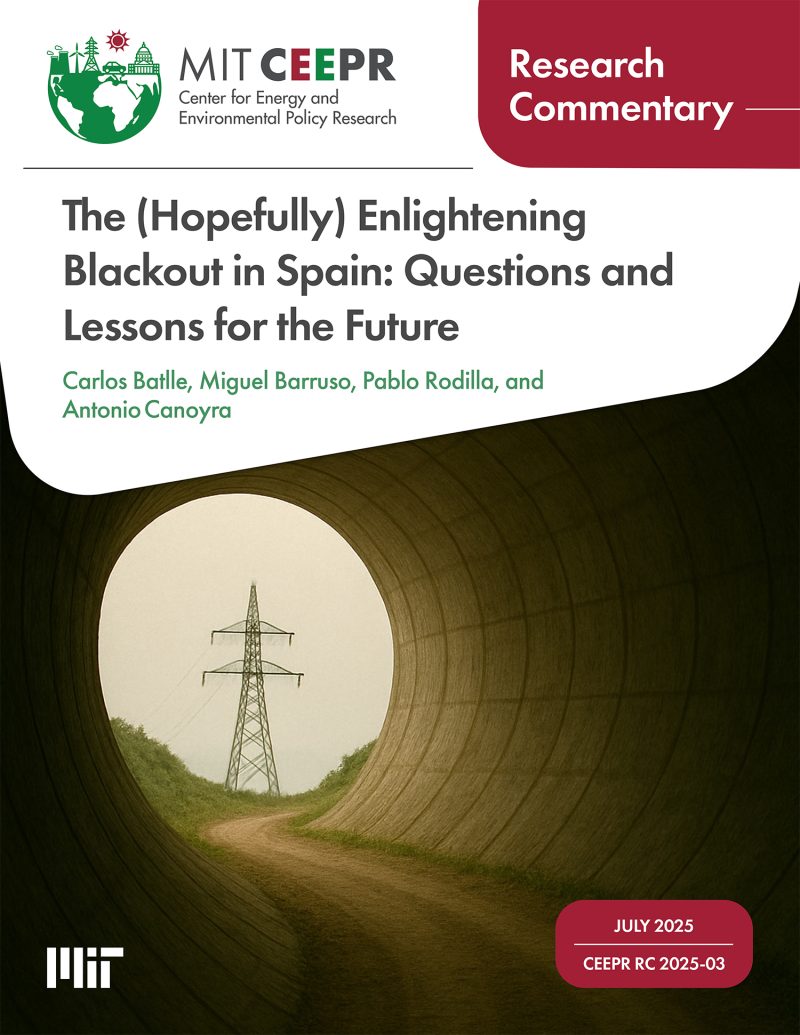The (Hopefully) Enlightening Blackout in Spain: Questions and Lessons for the Future
Carlos Batlle, Miguel Barruso, Pablo Rodilla, and Antonio Canoyra
July 2025
The April 28 blackout in the Iberian Peninsula triggered an immediate and wide-ranging response, exposing underlying political and institutional tensions in Spain’s electricity system. The event prompted swift action from the government, including the fast-tracked approval of long-delayed regulation and an investment plan to upgrade grid infrastructure. Yet, the rejection in Congress of a legislative proposal aimed at reinforcing system resilience—despite apparent support from key electricity stakeholders—highlighted the lack of political consensus on issues central to the country’s energy transition.
The blackout served as a stark reminder of the need to rethink electricity system planning, particularly the balance between short-term operational security and long-term investment. While ancillary services like voltage control have traditionally relied on short-term contracts, ensuring future system resilience may require greater upfront investments in equipment such as synchronous compensators or batteries. However, in institutional settings where system operators also own the infrastructure, such as Spain, a built-in bias toward capital-intensive solutions can distort planning decisions and crowd out potentially more efficient, service-based alternatives.
This research commentary argues that the blackout underscores the urgent need for more rigorous, non-hurried, and consensus-driven electricity system planning. This requires not only institutional unbundling between transmission ownership and system operation, or alternatively, the creation of an independent planning office, but also strengthening the regulator’s technical capacity to monitor and assess proposed investments. Without these reforms, Europe risks facing increasing security vulnerabilities and inefficiencies as it seeks to decarbonize its power systems.



